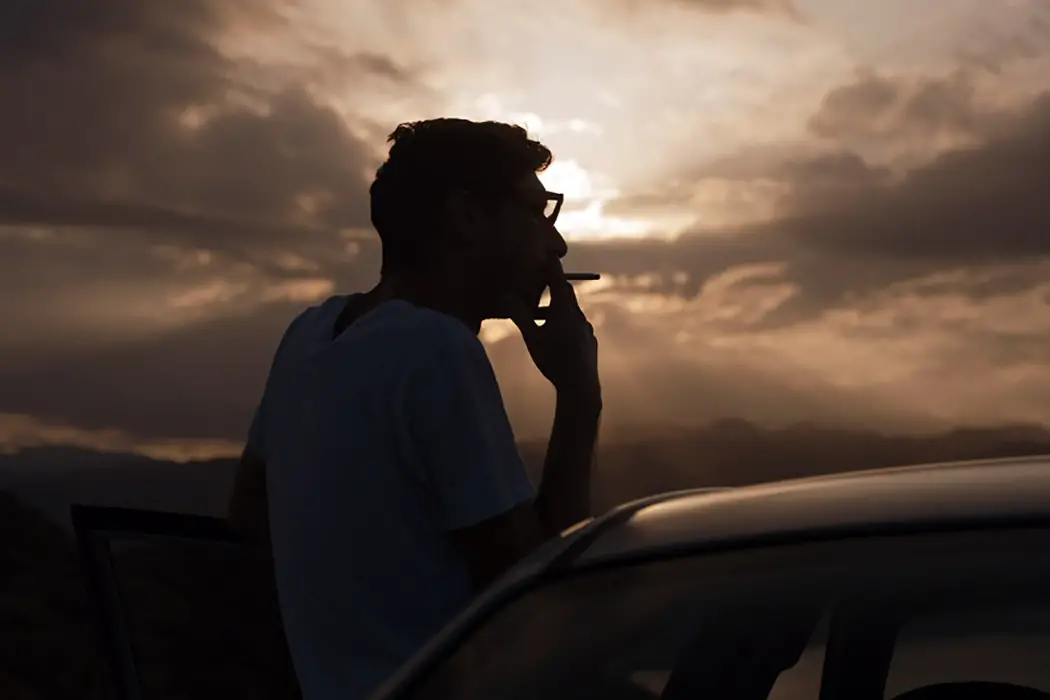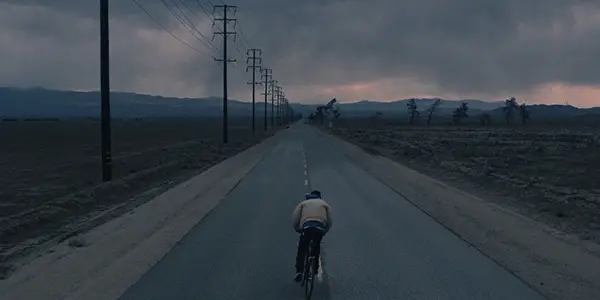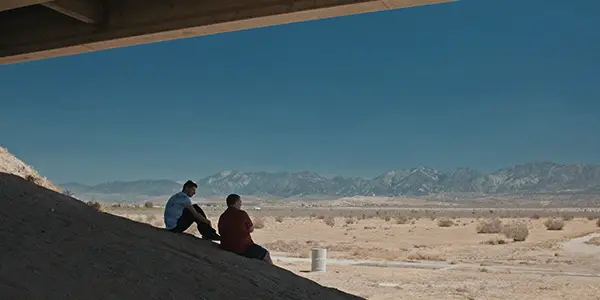CALIFORNIA DREAMS: I Don’t Know What I Just Watched & I Don’t Care

Arlin is an all-around film person in Oakland, CA. He…
Mike Ott‘s films might be best characterized as a sort of American neo-realism, utilizing “non-professional” actors in roles adjacent to their real life personas. Following in the tradition of films like On the Bowery or Killer of Sheep, his films often deal with class and those whose lack of economic power typically limits their voice and visibility. Also like those films, viewers watching Ott‘s work are likely to find themselves frequently wondering where the line is drawn between reality and construction, or if such a line even exists.
California Dreams feels like a film that Ott has been working up to his whole career. It’s his first since the little seen (but entirely worthwhile) Kid Icarus to be billed as a “documentary”, which in and of itself sets up certain kinds of expectations about truth and authenticity. Throughout the film these expectations are routinely questioned and reconfigured, until you’re left with an entirely different notion of reality than when you began. But it’s a notion that still adheres to the idea of “truth”; something I might call “constructed non-fiction”, or what Herzog terms “ecstatic truth”, which separates “facts” and “truth” as distinct entities, and recognizes that in order to arrive at what’s really true, sometimes it’s necessary to fabricate.
Behold, A Star
Aside from its interesting perspective on truth and reality, California Dreams is one of the funniest films in recent memory. Like, I was dying. And that is all owed to Ott‘s frequent collaborator and the film’s star, the effortlessly captivating Cory Zacharia (whose instagram you need to follow right now. I’ll wait). He’s a true original with no cinematic corollary I can think of in either narrative or documentary.

The film’s main plot thread centers around Cory as he’s just been offered the opportunity to star in an independent German film, provided that he’s able to get the funds together to fly himself to Berlin. It is a particularly tall order as it’s been 8 years since Cory has had a job in economically depressed Lancaster, CA; the desert town that Los Angeles might have been were it not for irrigation and the movies. It is a situation that produces such comic incongruities as editing a resume to apply to Subway in order to lead an international production.
Ott uses this narrative element as a jumping off point to explore the American dream, and particularly that of becoming a movie star. A cast of characters join Cory as subjects at different points in the film, all with their own particular idiosyncrasies. Each deliver a prepared monologue for the camera, which in a sense are microcosms of the film itself.

None of the performances would be considered “good” by the usual measure, but as they come from familiar Hollywood films they are recognizable as fiction. Yet the actors’ (subjects? characters?) delivery and choice of monologue really conveys something about the essence of the individual performing. In that way, we might recognize other parts of the film, some clearly fabricated others perhaps more disguised, as having the same purpose.
California Dreams: Exploitation or Celebration?
Much of the discussion around California Dreams seems to be about how Ott treats his subjects, with some asserting that he’s punching down to exploit them for humor. While I can see how some might feel this way, I would strongly disagree. The subjects are presented as they are, foibles and all, but why should that necessitate exploitation? This is a film about the dreams of ordinary people, something we all are and to which we can mostly all relate, as is the fact that some dreams, when viewed from the outside, might seem less achievable than others.

Films generally, and documentaries in particular, have a unique empathizing power to inhabit a new subjectivity, and my guess is those lobbying this critique at the film may have been uncomfortable occupying head spaces of those with whom they are unaccustomed to being presented on a screen. But the fact remains that all those featured in the film bravely shared some of the deepest aspects of their psyches, and I think their director recognized the responsibility he owed them for that and presented them with love and respect.
California Dreams is routinely described as being a “hybrid”, a term usually off-putting to me, but here it feels right. There’s so little delineation between what’s “real” and what isn’t, and even less desire to do so. It’s a movie that won’t hold your hand for you, but after watching you’ll want to grab onto it so that it may continue to take you on its odd journey. Even with all the constructed elements, it feels very authentic in a way that few films do.
What are your favorite films that blur the line between documentary and fiction?
California Dreams is available to stream on Amazon Prime.
https://www.youtube.com/watch?time_continue=2&v=ZmqXRN60B4o
Does content like this matter to you?
Become a Member and support film journalism. Unlock access to all of Film Inquiry`s great articles. Join a community of like-minded readers who are passionate about cinema - get access to our private members Network, give back to independent filmmakers, and more.
Arlin is an all-around film person in Oakland, CA. He received his BA in Film Studies in 2010, is a documentary distributor and filmmaker, and runs Drunken Film Fest Oakland. He rarely dreams, but the most frequent ones are the ones where it's finals and he hasn't been to class all semester. He hopes one day that the world recognizes the many values of the siesta system.













